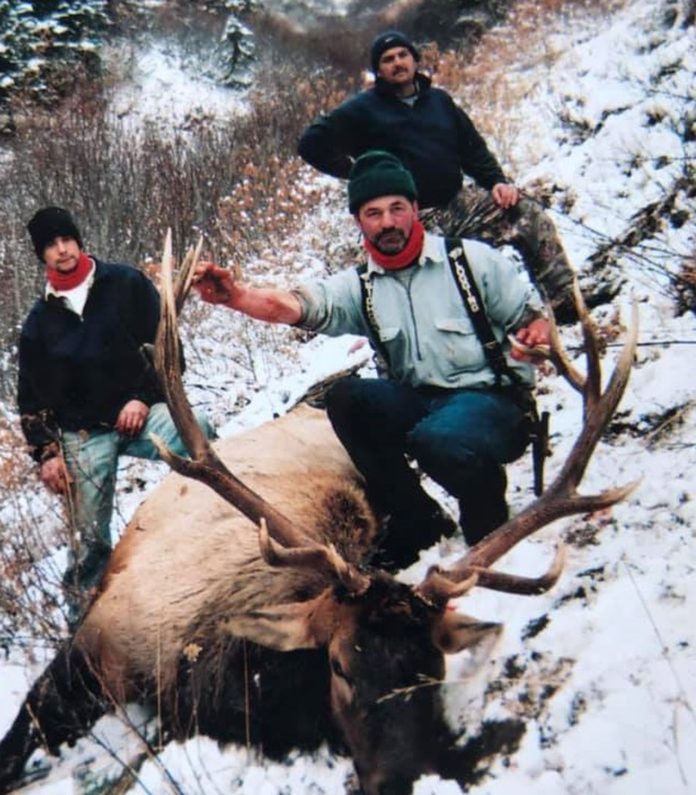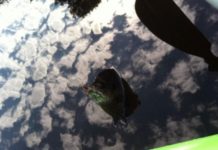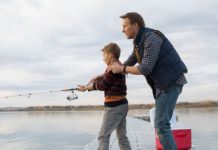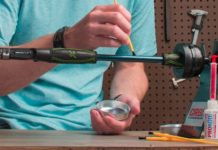Two weeks before finally losing an 18-year battle with cancer this past summer, Gary Herb gathered his family and urged them to transfer his coveted Snake River elk tag to one of his children.
Herb, 65, was born and raised in Roy, a small, tightly-knit community west of Hillsboro. He hunted elk or deer every consecutive season for 52 years. In that span, his wife, Susan, three sons and a daughter believe he harvested 30 elk. They’ve lost count of how many deer he brought home.
“He provided our meat every year,” said Connie Claeys of Hillsboro, Herb’s daughter. “We never bought hamburger. His passion and his love for hunting and the outdoors inspired us all when we were growing up.”
Herb fought through five surgeries and numerous cancer treatments, but never quit hunting.
“Even when he was beaten down, at least he bought a tag and drove into the Coast Range if that was all he could do,” said son Dan Herb of Hillsboro. “He never gave up and never wanted us to.”
It takes awhile to draw a Snake River Unit elk tag. The unit is Oregon’s steepest, and the canyon abounds with wildlife because of its remoteness and difficulty to hunt.
Undaunted, Herb applied for the tag as soon as he could this year and won it in the June drawing, along with son Steve. Realizing later he wouldn’t make the hunt, he began lobbying his children.
After he passed on July 24, his sons’ vote was unanimous – Dad’s elk tag would go to Connie Claeys, 40, who had taken two deer over the years, but never an elk.
“When I was growing up, I didn’t have a big interest,” Claeys said. “Besides, when elk season came around, I had three brothers and they were always champing at the bit. I stayed home mostly and did girl things.”
The family had plenty of interest from the Oregon Department of Fish and Wildlife.
“We have a procedure in place specifically designed for this type of situation,” said Curt Melcher, department director.
The tag was reassigned to Claeys, and shortly before opening day, Nov. 7, she and husband Jimmy left their 7-year-old son, Hunter, with Grandma Claeys and headed to her aunt and uncle’s house in the Imnaha River canyon with her brothers, Dan, Steve and Greg, two uncles and two cousins. It would be their headquarters as she and Steve hunted hillsides rising sharply to the sky.
The largest bull ever taken by the late Gary Herb of Roy was a seven-by-seven in the Mt. Emily unit in 2005. With him were son Steve Herb of Hillsboro and brother-in-law Jim Senz of Roy. (Photo courtesy of the Herb family)
In his lifetime, the family said Gary Herb never paid a guide and never hunted on private land.
“He was all about fair-chase and public land,” Dan Herb said. “He taught us how to do it right.”
Claeys didn’t dwell on details of the hunt, during which Steve missed a couple of shots and she took a five-point bull with a shot across a draw from her father’s 7mm rifle.
…A deep draw (“It all looked steep to me,” Claeys said).
…In deep snow.
…With husband Jimmy and brothers Steve and Greg helping bring it out (Dan had to return home early).
It was an emotional moment.
“My brothers had all been able to elk hunt with our dad, but I hadn’t,” Claeys said. “It meant a lot to me; my opportunity to hunt with him.”
Weeks after the hunt, Melcher shared a thank you from Claeys to him and the staff that helped transfer the tag:
“Good morning,
“I wanted to share what you made possible…by transferring his Snake River elk tag to my name. Despite lots of snow, we were lucky enough to fill his final tag in his honor. Thank you doesn’t seem like enough…This will be a memory to last a lifetime.
“My first bull, his last.
“Sincerely, Connie Claeys”
Christmas reminders: Oregon hunting and fishing licenses are on sale now at license vendors or online; along with several other stocking stuffers such as wildlife license plates, parking permits, wildlife stamp art, etc. …Christmas trees will be collected Jan. 2 and Jan. 9 (both Saturdays) by Trout Unlimited volunteers at Northwest Fly Fishing Outfitters and the decommissioned fire station, both in West Linn. The trees will be used for coho restoration projects in the Clackamas River.
— Bill Monroe
Credit: Source link































